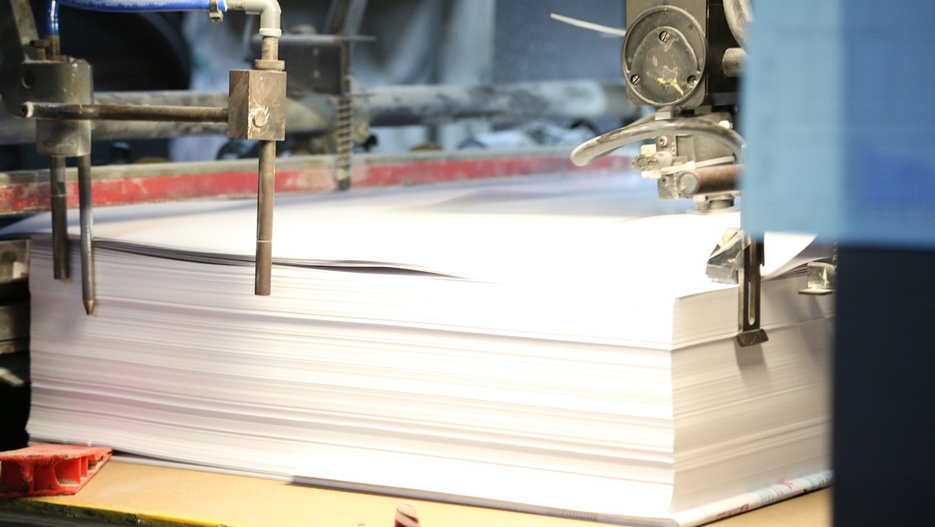Modernization of the Uganda National Examinations Board: A Success Story for Typotech Imaging Systems
In a recent interview, Alfred Kandarah, Managing Director at Typotech Imaging Systems Ltd, a supplier of prepress, press and postpress equipment and consumables, workflow solutions and technical support in Kenya, Uganda, Tanzania and Ethiopia, discussed one of the company’s biggest success stories: the modernization of the Uganda National Examinations Board.

Typotech Imaging Systems Ltd is a supplier of prepress, press and postpress equipment and consumables, workflow solutions and technical support, but also the sole distributor for the Kodak Graphic Communications Group in Eastern Africa, as well as other major manufacturers of press and postpress equipment and consumables. In operation since 1997, the company provides its customers in the printing, publishing, advertising and other industries, with the best quality pre-press equipment, pre-press workflow and printing consumables.
In terms of international presence, Typotech Imaging Systems Ltd has offices all over the region (Kenya, Uganda, Tanzania and Ethiopia). In a recent interview, Alfred Kandarah, the company’s Managing Director, discussed one of Typotech’s success stories from Uganda:
“One of the biggest success stories we have had in Uganda was in 2015. We participated in an open international tender to modernize the Uganda National Examinations Board which at that time had very old machinery and could not cope with the production of examination material for the whole country. As a result, most of the examinations were printed outside of the country and there were the usual inherent security issues and delays. The Ugandan government, through support from the World Bank, embarked on the modernization of the Uganda National Examinations Board’s printing department. We were the top contender and we were awarded the contract to modernize the press from scratch. It involved the entire system from prepress equipment, workflow, the web offset presses and finishing units, up to packaging and wrapping of the exams and site preparation. We moved in and delivered the project within the scheduled time installing the Kodak process free Trendsetter 800Q CTP system with Prinergy workflow from Belgium in the prepress division, two 4HiTower Ronald web presses from India, two Gämmerler RS 134 all-round trimming and KL 550 compensating stackers, Perfecta 115 Guillotine complete with Jogging units, a Durselen PB 15 paper drilling and Signode strapping systems from Germany. We integrated the entire production system from prepress to finishing in record time, did the operators and support engineers training and supported the system for three years as part of the warranty agreement. After three years, we officially handed over the project to the Ministry of Education, government of Uganda. The engineers were well-trained and could take care of the day to day technical requirements, and so were the operators who were able to manage the whole process on their own. We only come in the case of an escalated technical issue that the local in-house engineers are not able to address. This is a major success story and we are happy that, to date, all exams in Uganda are printed in house, on time, and securely. This is a turnkey solution. We are happy that it was accomplished in record time and to the specs that the customer expected and that all went well”, he explained.
When asked about challenges that had to be faced during the project, Alfred Kandarah added: “This project was complicated because there was various equipment manufactured by various manufacturers. We had the task to make sure they all communicated. The physical challenge was quite logistically complex. We had units coming in from Germany, Belgium, some components from the US and Canada, as well as the prepress components, then the presses from India. All this was being shipped at different times, some arriving earlier than others. We had to work on the site and had engineers on the ground installing other pieces of equipment while they waited for the rest to arrive. When everything came in, our team had to work with our partners and engineers from Brussels, Germany, and India, so we had to put it all together. Then we had the training. The most challenging part was the integration. These were systems operating at different speeds with their own software and we had to integrate them to make sure that they could work in unison to achieve the final result which was securely printed examination booklets at the end of the production chain. It was a challenge, but it was a worthwhile challenge because through the cooperation of all our partners and engineers, we were able to deliver it on time”.
For more information, please visit: www.typotechkenya.com.
FAIR USE POLICY
This material (including media content) may not be published, broadcasted, rewritten, or redistributed. However, linking directly to the page (including the source, i.e. Marcopolis.net) is permitted and encouraged.